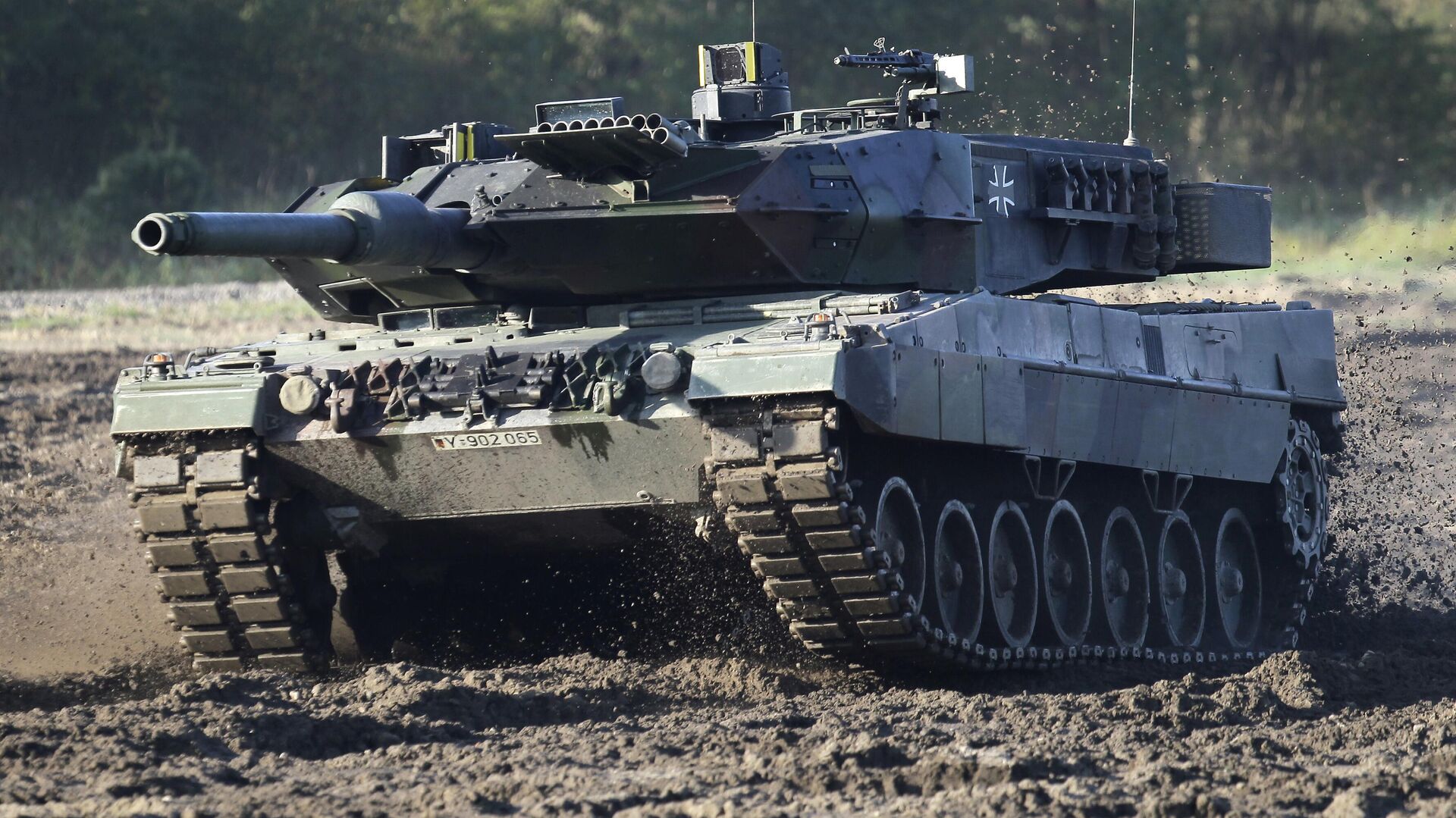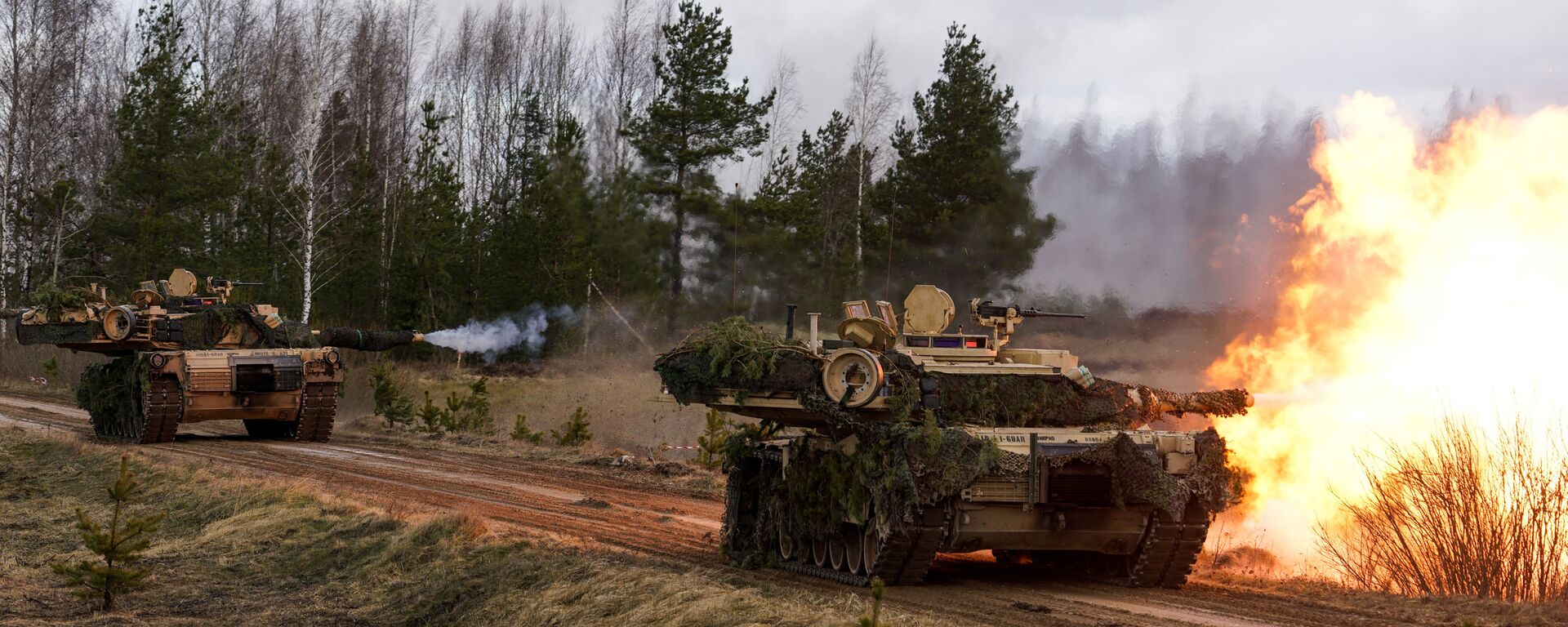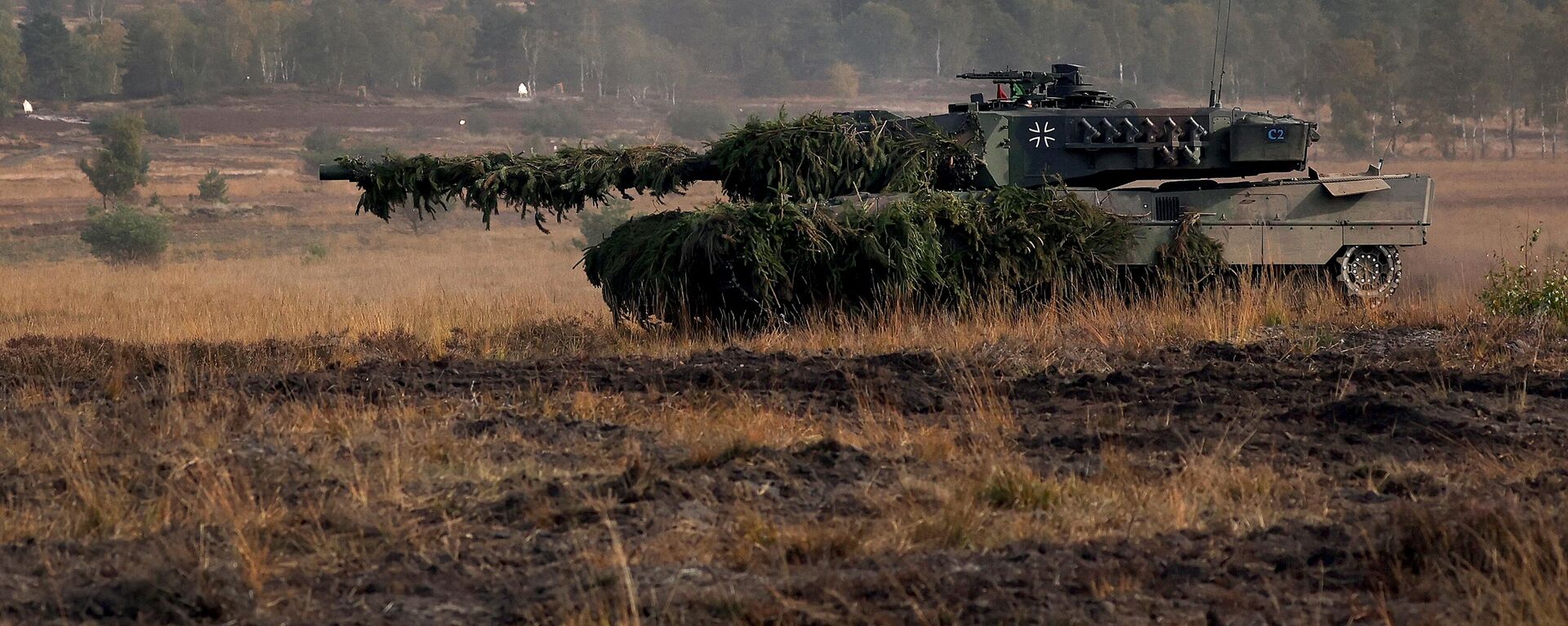Supply of Leopards to Kiev: ‘Spanish Gov’t Humbly Follows Washington's & NATO's Orders’

© AP Photo / Michael Sohn
Subscribe
In mid-2022, Spanish Defense Minister Margarita Robles said she would not send Leopard tanks to Ukraine because they were in "absolutely deplorable condition." In January 2023, however, Robles herself confirmed that the Spanish government had begun refurbishing some Leopard 2A4 tanks for delivery to Kiev.
"If NATO orders to send tanks, the Sanchez government cannot refuse," commented Juan Antonio Aguilar, director of Geoestrategia.es, on the recent announcement by the Spanish Defense Ministry to send Leopard tanks to Kiev.
However, he gave three reasons as to why these vehicles would be useless. Juan Antonio Aguilar explained that the poor condition of the tanks was not an excuse to not send them to Kiev. On the contrary, Spain tried to comply with all NATO requests.
"Frankly, I don't think it's an excuse. The Spanish government is absolutely obedient to the orders of Washington and NATO. Spain is a country with zero sovereignty in international affairs, and it is simply appalling to see a left-wing government, supposedly made up of anti-NATO and anti-war political parties, leading the country into war, no matter how much they try to hide it by disregarding popular sovereignty and deceiving their voters. If NATO orders Madrid to send tanks, the Sanchez government will not be able to refuse," the analyst said.
According to the expert, the Leopard A4 tanks stationed in Zaragoza have not been moved in more than 15 years, and it would take a lot of work and money to get them up and running again. Assessing the current situation, the expert identified three main problems that the Spanish government may face.
First of all, he noted, there is the training of the crew, which takes about 22 months, but Spain plans to do it in four to six weeks. It turns out that poorly trained Ukrainian troops will operate a sophisticated weapons system in the most dangerous spot in the world, the expert said.
"Unless there would be volunteer crews from NATO countries," he added.
The second problem is logistics. One hour in a combat zone is equivalent to three hours of maintenance on such tanks. Ukrainian soldiers also need highly specialized maintenance teams and training to produce quality mechanics, so the analyst doubts this can happen.
"The tanks provided would have to be returned to NATO countries for any significant repair of equipment damaged by simple use or actual combat, which means that the total number of tanks available to Ukraine would be far less than the number of tanks provided," Aguilar said.
Third, the operational environment is another challenge for Kiev. Tanks cannot operate alone. They must coordinate with other types of forces, such as air defenses, artillery, drones, or attack helicopters. In addition, the terrain through which they advance must be occupied by infantry in mechanized formations, he explained, calling such tank deployments a "monstrous operation" if these conditions are not met.
"In conclusion, sending tanks for the sake of sending tanks is more like a monstrous propaganda operation to continue giving the impression that Kiev still has military capabilities," he stressed.
At the same time, Aguilar noted that while some Western tanks have advantages over Russian tanks, it also works the other way around. For example, Russian tank crews require three tankers, while Western tanks require four. The Russian T-90 tank has a 125mm main gun, the Leopard has a 120mm one, and the Russian tank also has a range of fire advantage of 4,000 meters to the Leopard's 3,500 meters, the analyst calculated.
"It also has better mobility, greater autonomy and ability to take cover, a lower profile for anti-tank weapons, and another very important aspect: it is much cheaper to produce," he said.
Spanish Leopard 2 A4 VS German Leopard 2 A6
Comparing the two types of Leopard tanks, the expert pointed out that the tanks Germany is sending to Ukraine are at least 15 years newer than the Spanish ones, so their technological gap could be very large. The crews of these types of tanks are not interchangeable, which aggravates the problem rather than facilitates combat operations.
"Each model would require a different maintenance phase, the vehicles would also require different spare parts, different trained mechanics, different ammunition, changes in communication systems, software and other technical aspects to operate coherently," he said.
Therefore, the analyst concluded that sending 150 Leopard tanks to Kiev would not give the Ukrainian army any advantage and would not change the course of Russia's special military operation.
"The 150 NATO tanks will have no strategic impact. At the operational level, they will have very little effect, at great cost or loss, while at the tactical level they will be able to conduct some kind of operation that will be more media than military effective," he admitted.
Russia has repeatedly warned that supplying arms to the Kiev regime will only increase tensions in Eastern Europe and exacerbate the conflict in Ukraine. However, the United States and its EU allies have launched a sanctions campaign against Moscow to supposedly weaken its economy and prevent Russia from funding its army.





